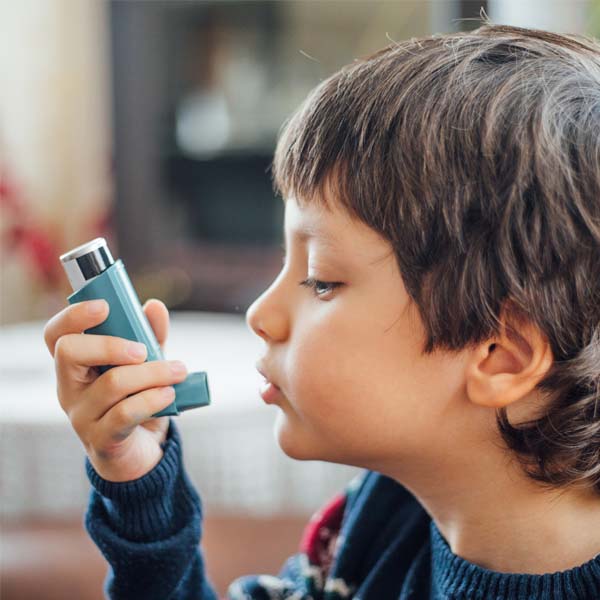Premenstrual syndrome (PMS) refers to physical and emotional symptoms that occur in the one to two weeks before a woman's period.
Premenstrual dysphoric disorder (PMDD) is a more severe form of PMS that has greater psychological symptoms. PMDD affects three to eight percent of pre-menopausal women.
Causes
While PMS is linked to the luteal phase, the causes of PMS are not clear, but several factors may be involved. Changes in hormones during the menstrual cycle seem to be an important factor; changing hormone levels affect some women more than others. Chemical changes in the brain, stress, and emotional problems, such as depression, do not seem to cause PMS but they may make it worse. Low levels of vitamins and minerals, high sodium, alcohol, and/or caffeine can exacerbate symptoms such as water retention and bloating. PMS occurs more often in women who are between their late 20s and early 40s; have at least 1 child; have a family history of depression; and have a past medical history of either postpartum depression or a mood disorder.
Signs and symptoms
More than 200 different symptoms have been associated with PMS. Common emotional and non-specific symptoms include stress, anxiety, difficulty in falling asleep (insomnia), headache, fatigue, mood swings, increased emotional sensitivity, and changes in libido.
Physical symptoms associated with the menstrual cycle include bloating, lower back pain, abdominal cramps, constipation/diarrhea, swelling or tenderness in the breasts, and joint or muscle pain, and food cravings. The exact symptoms and their intensity vary significantly from woman to woman, and even somewhat from cycle to cycle and over time.
Diagnosis
There is no laboratory test or unique physical findings to verify the diagnosis of PMS.
The three key features are:
• The woman's chief complaint is one or more of the emotional symptoms associated with PMS (most typically irritability, tension, or unhappiness). The woman does not have PMS if she only has physical symptoms (such as cramps or bloating).
• Symptoms appear predictably during the luteal (premenstrual) phase, reduce or disappear predictably shortly before or during menstruation, and remain absent during the before ovulation.
• The symptoms must be severe enough to disrupt or interfere with the woman's everyday life.
Management
Many treatments have been tried in PMS. Reducing salt, caffeine, and stress along with increasing exercise is typically all that is recommended in those with mild symptoms.Calcium and vitamin D supplementation may be useful in some. Antiinflammatories such as naproxen may help with physical symptoms. In those with more significant symptoms birth control pills may be useful.
Antidepressants
SSRIs like fluoxetine, sertraline can be used to treat severe PMS. Women with PMS may be able to take medication only on the days when symptoms are expected to occur. Side effect such as nausea and weakness are however relatively common.
Hormonal Medications
Hormonal contraception is commonly used; common forms include the combined oral contraceptive pill and the contraceptive patch. This class of medication may cause PMS-related symptoms in some women, and may reduce physical symptoms in other women, They do not relieve emotional symptoms.
Progesterone
Gonadotropin-releasing hormone agonists can be useful in severe forms of PMS but have their own set of significant potential side effects.
Management with Homoeopathy
Such cases can be managed with homoeopathy by giving constitutional treatment. The most common remedy which is been used to treat this disease are Sepia, Nat mur, Calc carb, Lachesis, Sanguinaria.
Surprising as it may sound, almost three out of every four menstruating women experience some form of premenstrual syndrome (PMS). PMS is basically a combination of physical and emotional disturbances which occur just before the menstrual period. It can present with a wide variety of signs and symptoms ranging from mood swings and tender breasts to fatigue, depression, etc.
Lifestyle adjustments and homeopathic treatment can help you to manage the signs and symptoms of your premenstrual syndrome. A randomized controlled double-blind clinical trial clearly demonstrated that 90 % of the patients who had received homeopathic treatment for their PMS experienced more than 30 % improvement. The sick-days before menses were reduced and the use of conventional drugs was also reduced in this group.
At Dr. Batra's, we have successfully helped many women to deal with their suffering and lead a normal pain-free life again. Don't you think it's time you took control of your life and treated your premenstrual syndrome with Homeopathy?

